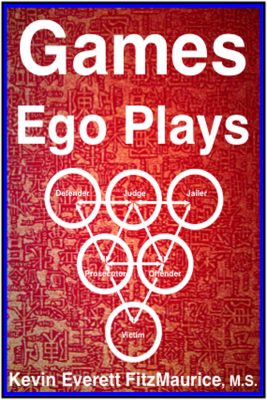GAADSAPNo-ting3D: Daily DoseRelated Pages6 Groups of Topics10 Skills & Topics
Understanding GAADSAP Problematic Emotions & No-ting
- Garden will teach you an easy and effective Cognitive Behavioral Therapy system (CBT & REBT) system.
- REBT practitioners update their practice for greater effectiveness & efficiency with Not.
- Ego will help you to live sane in an insane world of competing ego stories.
- We’re All Insane! 2nd Ed. will teach you how to think better, and saner.
- Read for an understanding of no-ting and the number one cause of problems, mistakes, and errors.
No-ting is the subject of the book Not a.k.a. Don’t Read This!
- This page discusses how no-ting is involved in the problematic emotions collected together into the acronym GAADSAP (pronounced “gad sap”): guilt, anger, anxiety, depression, shame, attachment, pride.
GAADSAP Emotions & No-ting
- GAADSAP: guilt, anger, anxiety, depression, shame, attachment, pride.
- Attachment is normally not considered an emotion; however, people are the most emotional about the things that they are attached to.
- Pride might or might not be considered an emotion by many, but like shame, pride is all about how you feel.
Guilt
- Good guilt is about admitting personal errors, failings, faults, problems, and mistakes.
- Bad guilt is about viewing your individual self (ego as a self-image) as defective, stupid, worthless, or somehow inferior to the self of others.
Guilt & No-ting
- Bad guilt tries to make some negative thought about you or some negative action of yours in the past to not exist (no-ting).
- Bad guilt wants to not away something using itself, guilt, as its magical power to erase it.
- Bad guilt often leads to the denial and suppression of problems which only safeguards and feeds those problems.
Anger
- Good anger is about stopping immediate danger or harm to yourself or others.
- Bad anger is about defending the ego and trying to stop ego pain.
Anger & No-ting
- Bad anger tries to make what it is mad about not to exist (no-ting).
- Bad anger wants to not away something using itself, anger, as its magical power to erase it.
- Bad anger often leads to the denial and suppression of problems which only safeguards and feeds those problems.
Anxiety
- Good anxiety helps you to be proactive, to plan, and to problem-solve.
- In other words, anxiety helps you to recognize and prevent dangers and problems.
- Bad anxiety keeps you worried about how people did and will think about you.
Anxiety & No-ting
- Bad anxiety tries to make what it is worried about not to exist (no-ting). Bad anxiety wants to not away something using itself, anxiety, as its magical power to erase it.
- Bad anxiety often leads to the denial and suppression of problems which only safeguards and feeds those problems.
Depression
- Good depression is motivation to surrender ego and to turn to God. In other words, you realize that you cannot save yourself; and, instead, you turn to God for your salvation.
- To understand this principle further, read Kierkegaard starting with, The Sickness Unto Death.
- Bad depression is to think that your self is a helpless and hopeless mess.
- Bad depression compares you to others in every negative way possible to prove you’re a loser.
Depression & No-ting
- Bad depression tries to make what it is upset about (negative self-esteem a.k.a. ego pain) to not exist (no-ting).
- Bad depression wants to not away ego pain using itself, depression, as its magical power to erase it.
- Bad depression often leads to the denial and suppression of problems which only safeguards and feeds those problems.
Shame
- Good shame is about admitting social errors, failings, faults, problems, and mistakes.
- Bad shame is about viewing your social self (ego as a social-image) as defective, stupid, worthless, or somehow inferior to the self of others.
Shame & No-ting
- Bad shame tries to make what it is worried about not to exist (no-ting). Bad shame wants to not away something using itself, shame, as its magical power to erase it.
- Bad shame often leads to the denial and suppression of problems which only safeguards and feeds those problems.
Attachment
- Good attachment is about staying true to your right identity (original nature, vessel nature, host nature, image of God).
- Bad attachment is about ego, about attaching to things and thoughts for the sake of ego pleasure, pride, and high self-esteem.
Attachment & No-ting
- Bad attachment tries to make what it is obsessed about not to exist (no-ting).
- Bad attachment wants to not away something using itself, attachment, as its magical power to erase it. In the case of attachment, this takes the form of covering, of hiding one identity with another identification.
- Bad attachment often leads to the denial and suppression of problems which only safeguards and feeds those problems.
Pride
- Good pride is about how human nature is a transceiver that can receive and resend signals from the world and also directly from God.
- Bad pride is about ego, about claiming abilities and capabilities for your self that only God has.
Pride & No-ting
- Bad pride tries to make what it is focused on not to exist (no-ting).
- Bad pride wants to not away something using itself, pride, as its magical power to erase it.
- Like attachment, this is typically done with covering, with calling the bad good, or hiding the bad behind or under some good.
- Bad pride often leads to the denial and suppression of problems which only safeguards and feeds those problems.
- Read for an understanding of no-ting and the number one cause of problems, mistakes, and errors.
3D: Daily Dose: 2018
#No-ting #Problem: 2018-06-10
- Thinking something should not be (no-ting) will not cause you to be magically rescued from it.
- Thinking something should not be (no-ting) because it is wrong will neither improve it nor lessen it.
- Having faith or hope that your thinking that something should not be (no-ting) will fix it is misplaced faith or hope.
- Change your life by focusing on solutions to problems instead of on the problems themselves.
- Change your attitude, emotions, outlook, responses, and results by focusing on solutions to problems instead of on the problems themselves.
#Try #Failing: 2018-06-14
- Trying fails because it is a form of no-ting, denying failure and thereby focusing on failure.
- Complaining and whining fail because they are a form of no-ting, denying some negative reality and thereby focusing on, feeding, and increasing that negative reality.
- Anger and meanness fail because they are a form of no-ting, of suppressing some negative reality and thereby focusing on, feeding, and increasing that negative reality.
- Blaming and damning fail because they are a form of no-ting, of wanting some negative reality that exists not to exist and thereby fortifying and reinforcing that negative reality with undue attention.
- Demanding and controlling fail because they are a form of no-ting, of wanting to make a negative reality that exists not to exist and thereby focusing on, feeding, and increasing that negative reality.
#Self-defeating #Failing: 2018-06-15
- Why do we get fixated on failing when that makes it worse? Because we want the pride of knowing evil (bad or wrong) more than we want success.
- How do we know evil? We know both good and evil by giving our identity to some knowledge of good or evil.
- Why does giving our identity to knowledge convince us that we know? Because by identifying with something, we claim it, contain it, have it, own it, possess it; and, psychologically, we are it.
- Why is claiming to know so important to us? Because such claims are the basis for ego, pride, and high self-esteem, a.k.a. ego pleasure.
- What can we do instead? We can surrender our ego, stop claiming to know, and give all glory and praise to God alone.
3D: Daily Dose: 2022
Move from GAADSAP to Coping: 10-21-2022
- “Counseling works when it moves your attention from GAADSAP emotional problems (guilt, anger, anxiety, depression, shame, attachment, pride) to coping and problem-solving.” —Kevin Everett FitzMaurice
- “Counseling will move your attention away from GAADSAP emotional problems (guilt, anger, anxiety, depression, shame, attachment, pride) by convincing you that they are unpractical because they hinder, not help, your goals.” —Kevin Everett FitzMaurice
- “Counseling will move your attention away from GAADSAP emotional problems (guilt, anger, anxiety, depression, shame, attachment, pride) by convincing you that they are nonfactual because they do not represent the majority of the evidence.” —Kevin Everett FitzMaurice
- “Counseling will move your attention away from GAADSAP emotional problems (guilt, anger, anxiety, depression, shame, attachment, pride) by convincing you that they are not logical because they follow illogical patterns, movements, reasoning, and conclusions.” —Kevin Everett FitzMaurice
- “Counseling will move your attention away from GAADSAP emotional problems (guilt, anger, anxiety, depression, shame, attachment, pride) by convincing you that they are unworthy of your time, energy, and effort.” —Kevin Everett FitzMaurice
Book Devoted to Overcoming No-ting Error
- Read for an understanding of no-ting and the number one cause of problems, mistakes, and errors.
Related Pages of Free Information
- CBT, CT, & REBT Cognitive Psychotherapies: List Pages
- Coping Skills: Free Help
- Counseling Issues: Free Help
- Ego & Self-Esteem Fast-Facts
- Emotional Responsibility: List Pages
- Emotions: 7 Problematic
- Exercises & Techniques: List Pages
- Feeling & Coping: Fast-Facts
- No-ting & the Problem of Knowing
- REBT (Rational Emotive Behavior Therapy): List Pages
- Self-Esteem Issues: List Pages
- Unconditional Self-Esteem (USE): Defined
- Read and discover the best diagrams and maps of how people play games with your mind and heart.
- Read and master the life skill of acceptance using the best combination of CBT, REBT, & Stoicism.
- Read for an understanding of no-ting and the number one cause of problems, mistakes, and errors.
6 Groups of Topics Menu
- 1. Pages by Topic
- 2. Fast-Facts by Topic
- 3. Quotations by Topic
- 4. Poems by Topic
- 5. Scripture by Topic
- 6. Websites by Topic
- Read and discover how CBT, REBT, & Stoicism evolved into one system: STPHFR.
- Read for the best breathing exercises for your feelings and stress.
- Read for an understanding of no-ting and the number one cause of problems, mistakes, and errors.
9 Skills & Topics Menu
- 1. Anger Skills & Topics
- 2. Blame Skills & Topics
- 3. Communication Skills & Topics
- 4. Coping Skills & Topics
- 5. Counseling Skills & Topics
- 6. Praying Skills & Topics
- 7. Recovery Skills & Topics
- 8. Responsibility Skills & Topics
- 9. Thinking Skills & Topics
- Read and discover how CBT, REBT, & Stoicism evolved into one system: STPHFR.
- Read for the best breathing exercises for your feelings and stress.
- Read for an understanding of no-ting and the number one cause of problems, mistakes, and errors.




